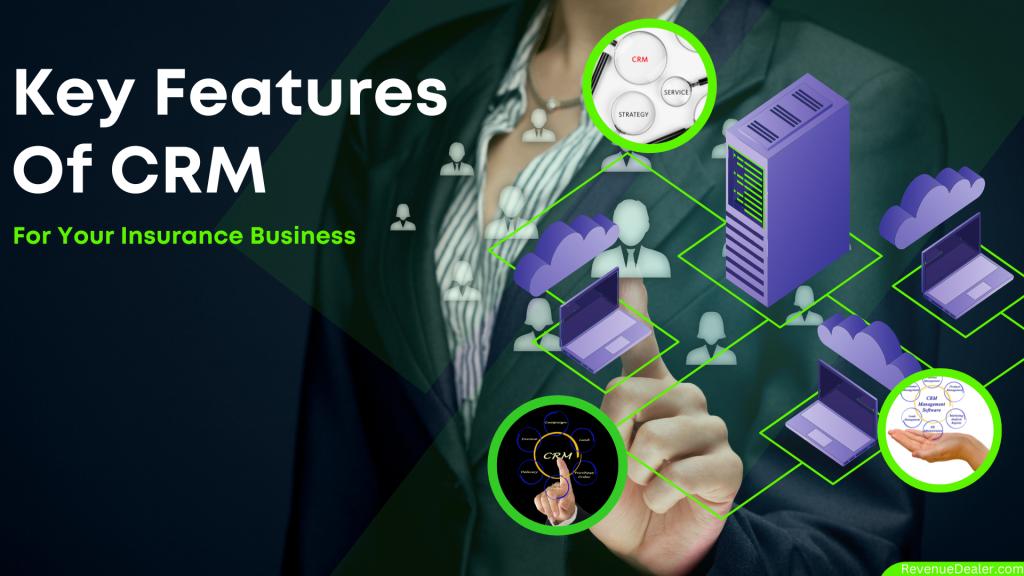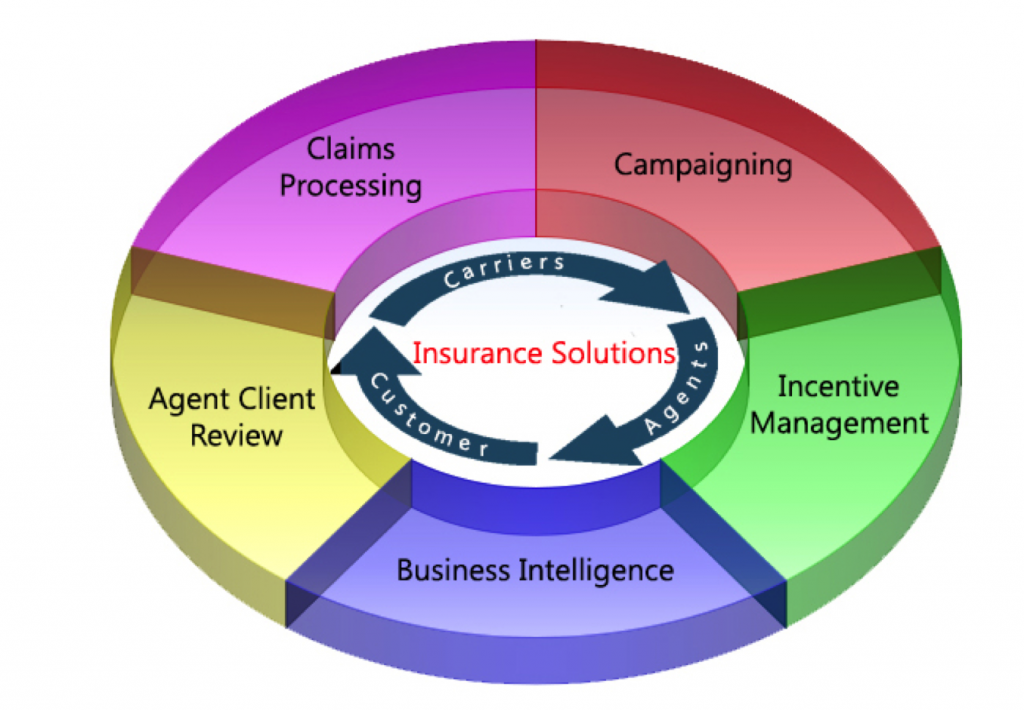CRM for insurance companies revolutionizes the way insurers manage customer relationships, enabling them to overcome unique challenges, drive growth, and deliver exceptional customer experiences. By leveraging the power of technology, insurers can streamline operations, increase efficiency, and foster lasting connections with their policyholders.
Throughout this comprehensive guide, we’ll explore the benefits, key features, and best practices of CRM for insurance companies, empowering you to make informed decisions and optimize your customer relationship management strategies.
Understanding CRM for Insurance Companies
Customer Relationship Management (CRM) is crucial in the insurance industry, enabling companies to manage interactions with policyholders, agents, and other stakeholders. It helps streamline processes, improve customer service, and drive business growth.
Insurance companies face unique challenges in managing customer relationships, including:
- Complex products and services:Insurance policies can be intricate, requiring specialized knowledge and tailored communication.
- Long-term relationships:Insurance policies often span years, necessitating ongoing engagement and relationship-building.
- Regulatory compliance:Insurance companies must adhere to strict regulations, which can impact CRM practices.
Despite these challenges, CRM has proven highly effective in the insurance sector. Notable examples include:
- Progressive Insurance:Implemented a CRM system to personalize customer experiences, resulting in increased policyholder retention.
- MetLife:Used CRM to enhance agent productivity and improve customer satisfaction, leading to a significant increase in sales.
Benefits of CRM for Insurance Companies

CRM systems offer a multitude of benefits for insurance companies, enhancing their ability to manage customer relationships effectively. These benefits include improved customer satisfaction and retention rates, increased sales and cross-selling opportunities, enhanced operational efficiency and reduced costs, and the ability to provide personalized and tailored customer experiences.
By leveraging CRM systems, insurance companies can gain a comprehensive view of their customers, including their policies, claims history, and interactions with the company. This enables them to better understand customer needs and preferences, leading to improved customer satisfaction and increased retention rates.
Increase sales and cross-selling opportunities
CRM systems also provide insurance companies with the tools they need to identify and track sales opportunities. By analyzing customer data, companies can identify customers who are likely to be interested in additional products or services. This information can be used to develop targeted marketing campaigns and cross-selling initiatives, increasing sales and revenue.
Key Features of a CRM for Insurance Companies

A CRM system designed specifically for insurance companies offers a comprehensive suite of features tailored to meet the unique needs of the industry. These features empower insurance companies to enhance customer interactions, streamline operations, and drive growth.
Key features of a CRM for insurance companies include:
Customer Data Management and Segmentation
A robust CRM system provides a centralized platform for managing and segmenting customer data. It enables insurance companies to capture and store comprehensive customer information, including personal details, policy information, claims history, and communication preferences. This data can be segmented based on various criteria, such as demographics, policy type, or risk profile, allowing insurers to tailor marketing campaigns, product offerings, and customer service interactions.
Policy Management and Tracking
An insurance CRM system streamlines policy management and tracking processes. It provides a centralized repository for all policy-related information, including policy details, coverage limits, premiums, and renewal dates. This allows insurance companies to easily access and manage policies, track their status, and identify opportunities for cross-selling or upselling.
Claims Processing and Automation
A CRM system can automate and streamline claims processing, reducing manual tasks and improving efficiency. It enables insurance companies to receive, track, and process claims electronically, reducing the time and effort required to resolve claims. Automated workflows and decision-making tools can help insurers quickly assess claims, determine coverage, and initiate payments.
Agent and Broker Management
A CRM system facilitates effective agent and broker management. It provides a central platform for tracking agent performance, managing commissions, and providing training and support. Insurance companies can use the CRM to monitor agent activity, track sales pipelines, and identify top performers.
This enables them to optimize agent productivity, improve customer service, and drive revenue growth.
Reporting and Analytics
A CRM system provides robust reporting and analytics capabilities that enable insurance companies to gain insights into their business performance. It generates reports on key metrics, such as customer acquisition, policy retention, and claims experience. These insights help insurers identify trends, optimize processes, and make informed decisions to improve customer satisfaction and drive growth.
Implementing a CRM in an Insurance Company

Implementing a CRM in an insurance company requires a structured approach to enhance customer relationships and streamline operations. This involves assessing the current state of customer relationship management, defining clear goals, selecting a suitable CRM vendor, training employees, and monitoring performance regularly.
Assess the Current State of Customer Relationship Management
Evaluate existing processes, systems, and touchpoints to identify areas for improvement. Conduct customer surveys, analyze data, and interview stakeholders to gather insights into customer needs, preferences, and pain points.
Define Clear Goals and Objectives for CRM Implementation
Establish specific, measurable, achievable, relevant, and time-bound (SMART) goals for CRM implementation. These goals should align with the overall business objectives and address key areas such as customer satisfaction, retention, and revenue generation.
Select a CRM Vendor that Aligns with Business Needs
Research and evaluate different CRM vendors to identify a solution that meets the specific requirements of the insurance company. Consider factors such as industry expertise, functionality, scalability, integration capabilities, and customer support.
Train and Onboard Employees on the New CRM System
Provide comprehensive training to employees on the new CRM system to ensure they understand its functionality and benefits. Develop training materials, conduct workshops, and offer hands-on support to facilitate a smooth transition.
Monitor and Evaluate CRM Performance Regularly
Establish key performance indicators (KPIs) to measure the effectiveness of the CRM system. Regularly track and analyze data to identify areas for improvement and ensure that the CRM is meeting its objectives. Make adjustments and optimizations as needed to maximize its impact.
Best Practices for CRM in Insurance Companies: Crm For Insurance Companies

Insurance companies can optimize their CRM strategies by implementing the following best practices:
Use Data to Drive Decision-Making and Personalization
Leveraging data from CRM systems enables insurance companies to make informed decisions and personalize customer interactions. By analyzing customer data, insurers can gain insights into customer preferences, behaviors, and risk profiles. This information can be used to tailor marketing campaigns, product offerings, and customer service experiences to meet the specific needs of each customer.
Foster Collaboration between Sales, Marketing, and Customer Service Teams
Effective CRM implementation requires collaboration between different departments within the insurance company. By breaking down silos and fostering collaboration between sales, marketing, and customer service teams, insurers can ensure a seamless customer experience. This collaboration enables teams to share customer information, track customer interactions, and provide consistent support throughout the customer journey.
Continuously Improve and Optimize CRM Processes
CRM systems should not be static; they should be continuously improved and optimized to meet the evolving needs of the business. Insurance companies should regularly review their CRM processes, identify areas for improvement, and implement changes to enhance efficiency and effectiveness.
This iterative approach ensures that the CRM system remains aligned with the company’s strategic goals and customer expectations.
Leverage Technology to Automate Tasks and Enhance Efficiency
Insurance companies can leverage technology to automate repetitive tasks and streamline CRM processes. By implementing automation tools, insurers can reduce manual workload, improve accuracy, and free up resources to focus on more complex and value-added tasks. Automation can be applied to various aspects of CRM, such as lead generation, data entry, appointment scheduling, and customer communication.
Trends and Future of CRM in Insurance

The future of CRM in the insurance industry is expected to be shaped by several key trends, including the integration of artificial intelligence (AI) and machine learning (ML), an increased focus on customer experience and personalization, the adoption of cloud-based CRM solutions, and the use of mobile CRM for remote access and convenience.
Integration with AI and ML
AI and ML are rapidly transforming the insurance industry, and CRM systems are no exception. AI-powered CRM solutions can automate tasks, improve customer segmentation, and provide personalized recommendations. ML algorithms can analyze customer data to identify patterns and trends, which can be used to improve underwriting, claims processing, and customer service.
Increased focus on customer experience and personalization, Crm for insurance companies
In today’s competitive market, insurance companies are increasingly focused on providing a superior customer experience. CRM systems can help insurers personalize the customer journey, from the initial quote to the claims process. By tracking customer interactions and preferences, CRM systems can help insurers provide tailored recommendations and support.
Adoption of cloud-based CRM solutions
Cloud-based CRM solutions are becoming increasingly popular among insurance companies. Cloud-based CRM systems are scalable, cost-effective, and easy to implement. They also provide insurers with the flexibility to access their CRM data from anywhere, at any time.
Use of mobile CRM for remote access and convenience
Mobile CRM solutions are becoming increasingly important for insurance companies. Mobile CRM systems allow agents to access customer data and manage their workloads from anywhere. This can be especially beneficial for agents who are working remotely or who need to access customer information while on the go.
Ultimate Conclusion
As the insurance industry continues to evolve, CRM will play an increasingly vital role in driving success. By embracing innovation and adopting a customer-centric approach, insurers can harness the full potential of CRM to build strong, long-lasting relationships with their policyholders, ultimately driving growth and profitability.
Expert Answers
What are the key benefits of CRM for insurance companies?
CRM for insurance companies offers numerous benefits, including improved customer satisfaction, increased sales and cross-selling opportunities, enhanced operational efficiency, reduced costs, and personalized customer experiences.
What are the key features of a CRM for insurance companies?
Key features of a CRM for insurance companies include customer data management and segmentation, policy management and tracking, claims processing and automation, agent and broker management, and reporting and analytics.
How can insurance companies implement CRM effectively?
Effective CRM implementation involves assessing the current state of customer relationship management, defining clear goals and objectives, selecting a CRM vendor that aligns with business needs, training and onboarding employees, and monitoring and evaluating CRM performance regularly.